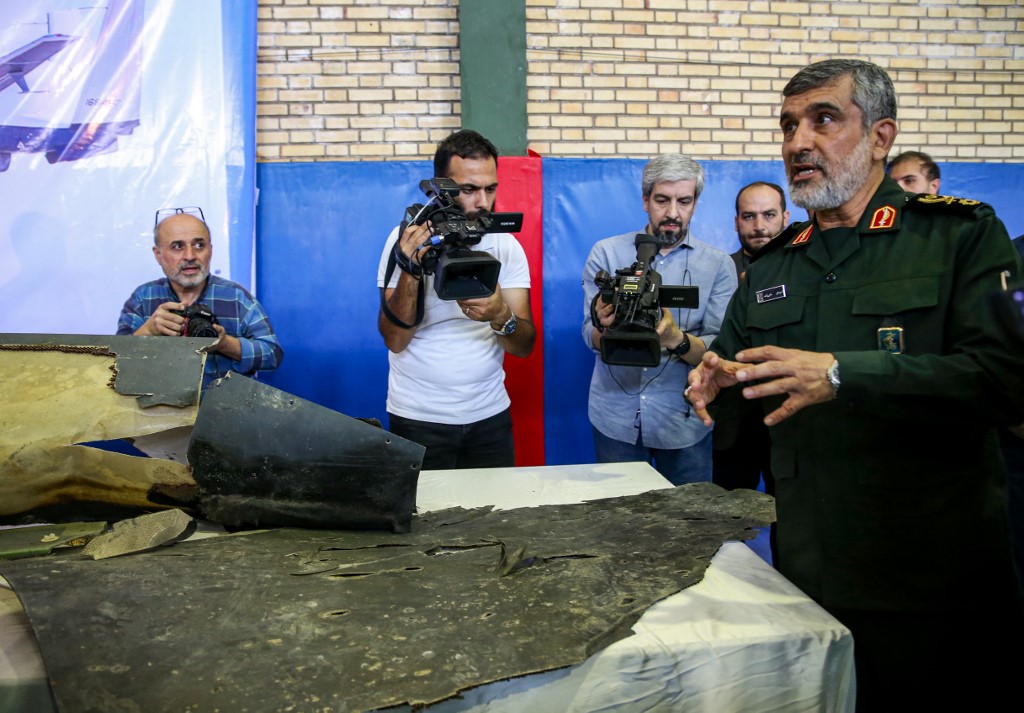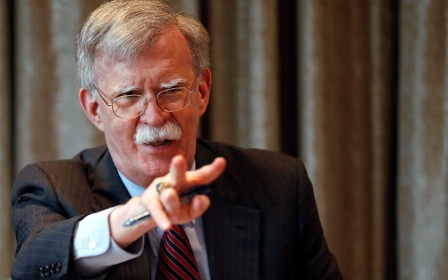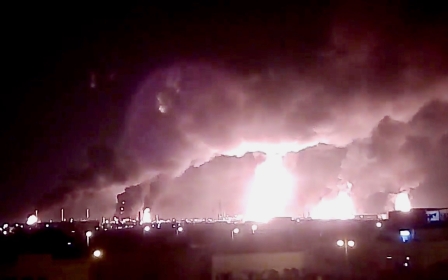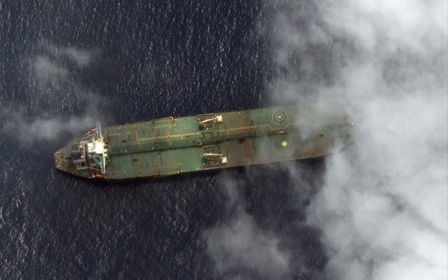Iran says US bases and aircraft carriers within range of its missiles
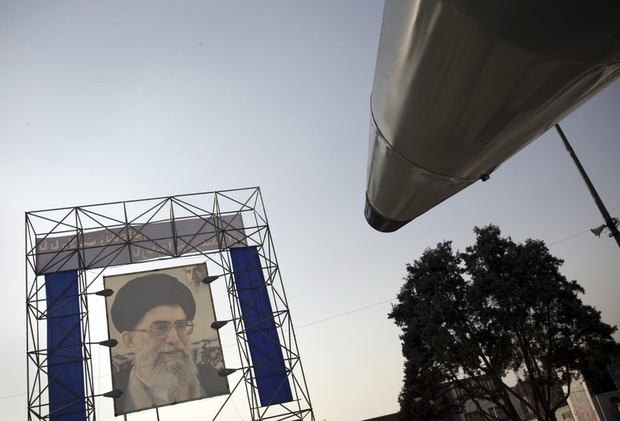
An Iranian revolutionary guards commander said on Sunday that all US bases and aircraft carriers in the Middle East were within range of Iranian missiles after a US official accused Tehran of being behind Saturday's attacks on Saudi oil facilities.
The statement comes a day after Yemen's Houthi group claimed responsibility for the pre-dawn drone attacks on two key Aramco oil plants in eastern Saudi Arabia, as the state-owned oil giant prepares for a much-anticipated stock listing.
US Secretary of State Mike Pompeo accused Iran of leading the attacks, and denounced Tehran for engaging in false diplomacy.
“Everybody should know that all American bases and their aircraft carriers in a distance of up to 2,000km around Iran are within the range of our missiles,” Amir Ali Hajizadeh, the head of Iran's Revolutionary Guards Corps Aerospace Force, said on Sunday, according to the semi-official Tasnim news agency.
"We have always prepared ourselves for a full-fledged war... everyone should know that all American bases and their vessels in a 2,000km range can be targeted by our missiles."
Stockmarket slumps
Following the attacks, Saudi shares slumped at the start of trading on Sunday, as the kingdom shut down about half of its crude production, affecting more than five percent of the world’s daily output.
The Wall Street Journal said officials hoped to restore production to its regular level of 9.8 million barrels per day by Monday.
"Abqaiq is the nerve center of the Saudi energy system. Even if exports resume in the next 24-48 hours, the image of invulnerability has been altered," Helima Croft, global head of commodity strategy at RBC Capital Markets, told the Reuters news agency.
Abbas Mousavi, Iran’s foreign ministry spokesman, rejected Pompeo's accusations on Sunday, suggesting they were meant to justify future actions against the Islamic Republic.
"Such remarks... are more like plotting by intelligence and secret organisations to damage the reputation of a country and create a framework for future actions," he said.
Saudi Arabia, which leads a military coalition that intervened in Yemen in 2015 against the Houthis, has blamed regional rival Iran for previous attacks.
Tehran has denied the allegations. Riyadh also accuses Iran of arming the Houthis, a charge denied both by the group and Tehran.
Saudi Arabia's de facto ruler Crown Prince Mohammed bin Salman told Trump by telephone on Saturday that Riyadh was willing and able to deal with the "terrorist aggression".
A senior Emirati official said the United Arab Emirates, Riyadh's main partner in the Western-backed military coalition in Yemen, would fully support Saudi Arabia as the assault "targets us all".
The UAE, concerned about the rising tensions with Iran and Western criticism of the war, has scaled down its military presence in Yemen, leaving Riyadh to try to neutralise the Houthis to prevent Iran from gaining influence along its border.
France, condemning Saturday's attack, said such actions "can only worsen regional tensions and risk of conflict".
Turkey, an ally of Iran, called for the avoidance of "provocative steps" that could harm regional stability.
Middle East Eye delivers independent and unrivalled coverage and analysis of the Middle East, North Africa and beyond. To learn more about republishing this content and the associated fees, please fill out this form. More about MEE can be found here.


